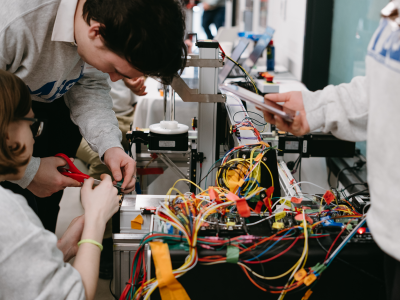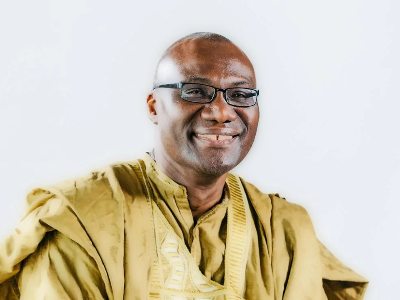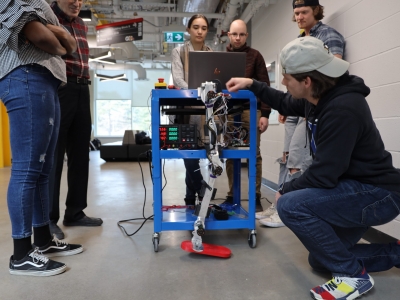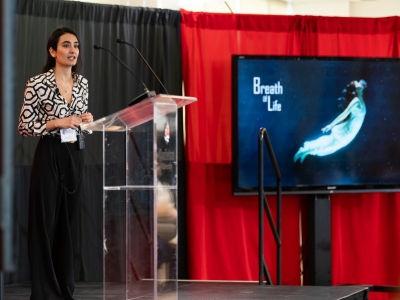The Faculty of Engineering and Design is delighted to acknowledge the winners of Carleton University’s 2020 Achievement Awards, which are bestowed annually in recognition of the distinction of our faculty, instructors and librarians.
Research Achievement Awards
The Carleton University Research Achievement Awards are administered by the Office of the Vice-President (Research and International) to recognize outstanding research achievements. The awards were established in 1989 to enhance the quality of research and to recognize research excellence. The recipients’ terms run from May to April.
Andy Adler
Canada Research Professor in Biomedical Engineering, Department of Systems and Computer Engineering
Project: Rapid, Non-invasive Diagnosis of Lung Disease in Cattle and Horses
Professor Andy Adler’s technology uses measurements on body-surface electrodes to create images of air and blood flow in the chest. This research will develop technology to diagnose lung disease in large animals. Their non-invasive solution will provide diagnostic information in seconds (compared to current sampling of airways and subsequent lab analysis), and will help to screen and manage infectious diseases in horses, livestock and wild populations.
Oren Petel
Associate Professor, Department of Mechanical and Aerospace Engineering
Project: The Cadaveric Response to Concussive Impact: Tracking Brain Tissue Displacement and Strain Fields with High-speed X-ray Imaging
Professor Oren Petel’s research is focused on developing technologies that will expand existing methods of helmet performance evaluation. His custom high-speed X-ray imaging system, designed and built in his lab, has enabled multidisciplinary research measuring the relative motion between the brain and skull of cadavers, data required to calibrate brain injury models. His group currently works with commercial helmet designers to translate their innovations outside of the university, in an effort to reduce concussion incidence, and ultimately benefit public health.
Steve Ulrich
Associate Professor, Department of Mechanical and Aerospace Engineering
Project: Adaptive Coordinated Motion Control of Free-Floating Space Robots
Controlling a small free-floating space robot is a challenging and risky task due to the large dynamic coupling between its manipulator arm and its base platform. Indeed, if left uncontrolled, these coupling effects will result in undesired changes in the orientation and position of the space robot. Prof. Ulrich’s research will address this challenge by developing a new coordinated space robot control strategy that intelligently adapts its behavior to efficiently manage adverse dynamical manipulator-platform coupling effects as well as large uncertainties inherent to robotic maneuvers in space. Experimental validation of the innovative control strategy will be conducted with the Spacecraft Proximity Operations Testbed; a unique facility in Canada which is part of Prof. Ulrich’s research laboratory.
Teaching Achievement Awards
The Carleton University Teaching Achievement Awards are intended to enhance the teaching of their recipients and the quality of instruction at Carleton.
Rishad Irani
Assistant Professor, Department of Mechanical and Aerospace Engineering
Shoebox Dynamics
Shoebox Dynamics is a cost-effective lab kit solution for large classes. They allow students to personally interact with engineering hardware and perform experiments. The kits, approximately the size of a shoebox, and the corresponding experimental learning modules allow students to explore various dynamic effects while developing critical thinking skills. The kits will be designed at the university so that in the future, they can easily be modified for other experiments or scenarios for experimental learning.
Contract Instructor Teaching Awards
The Carleton University Contract Instructor Teaching Awards recognize teaching excellence by Contract Instructors.
Lyette Fortin
Contract Instructor, Adjunct Professor, Azrieli School of Architecture and Urbanism
“My interest in teaching architectural conservation is to instill in students the importance of understanding, defining and respecting heritage and cultural values of our environment with the goal of intervening, in an ethical manner, to protect these values. Through the course, students can appreciate that conservation has realistic application in their academic design projects and in their future professional career where conservation is a valid sustainable approach to address society’s changing needs, respect inherent values, and add meaningful, creative layers to our built environment.”
Friday, February 21, 2020 in Architecture, Competitions and Awards (Internal), Mechanical and Aerospace Engineering, Research, Systems and Computer Engineering
Share: Twitter, Facebook



